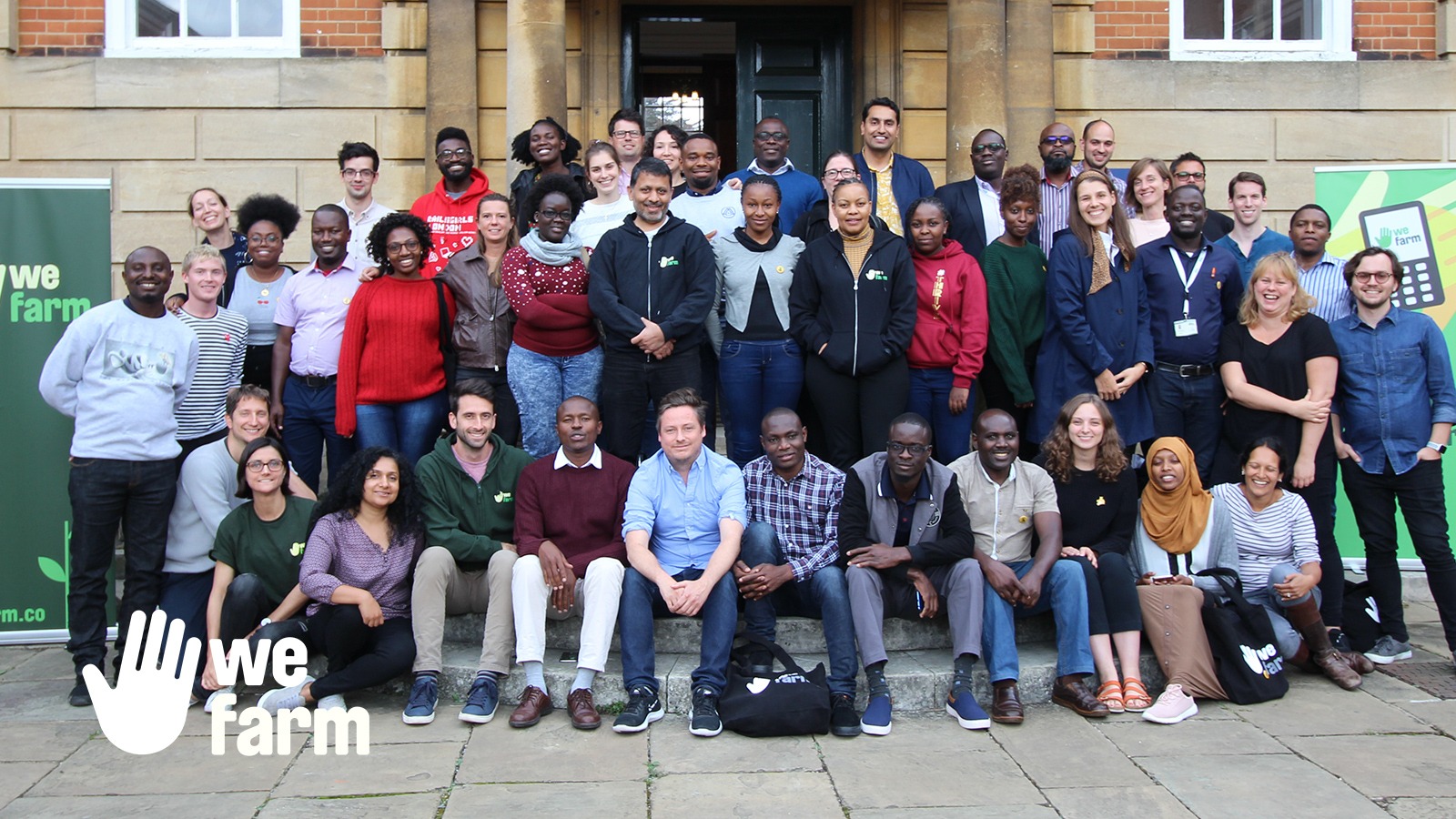Editor’s Note: AgFunder just invested in Wefarm, the peer-to-peer network for smallholder farmers, alongside lead investor True Ventures (investor in Peloton, FitBit, Ring, and Zymergen). Wefarm raised $13 million in Series A funding from True Ventures, AgFunder and June Fund, including previous investors LocalGlobe, ADV and Norrsken Foundation and others. This takes total funding to over $20 million. Michael Dean is founding partner at AgFunder.
We just announced our latest investment and it’s probably the fastest-growing agtech company we’ve seen. To get an idea of its scope, here’s what the founder Kenny Ewan told us last year.
“You could say that small-scale agriculture is the biggest industry of Earth. It’s a half billion people; it’s the entire world’s supply chain; it’s the origin or commodities markets, and nobody’s really built a platform on that.”
Well no-one had until Wefarm did. The peer-to-peer smallholder farmer network has just surpassed 2 million farmer members on its platform. To put that into context, Farmers Business Network, the biggest farmer network in the US that’s valued close to $1 billion and counts Google, Kleiner Perkins and Temasek as investors, has about 8,000, according to a recent radio profile of the startup.
Wefarm uses machine learning technology to connect small-scale farmers to crowdsourced information by enabling them to share techniques and advice on anything from how to battle a disease to how to increase their income. Farmers can ask questions in any language and messaging is free of charge.
If farmers don’t have internet access, they can access Wefarm via SMS on their mobile phones. Wefarm’s machine learning algorithms then match each question to the best-suited responder. The average time it takes for a farmer to receive an answer to their question is under thirteen minutes – even for farmers without internet.
Often farmers will be sending questions on old phones that could have keys missing and so Wefarm’s algorithms are trained to put the pieces together to understand what a farmer is trying to ask.
Wefarm has around 70,000 new subscribers each month and every day there are 40,000 questions and answers submitted on the platform in eight different languages. Of these, 78% are answered within one hour by a mix of respondents from other farmers to extension agents to graduates; the platform is agnostic to who responds as long as they are the best person.
This is arguably one of the largest agricultural networks in the world.
Why is this important?
I have worked extensively in African agriculture and I understand the enormous challenges faced by smallholder farmers there. Many farms are trapped in a cycle of poor yields and low income due to a lack of access to many things that western farmers take for granted, such as good quality seed and other inputs. As a result, they produce just 25% of the output that farmers in developed nations would on the same amount of land.
But one of the most important factors in successful farming is access to knowledge and information. This is something the team at Wefarm recognised early and have built an incredibly powerful information platform. And now Wefarm is also working on providing African farmers access to quality inputs to combat the sale of counterfeit products; the United Nations says almost 90% of fertilizers sold in East Africa have been adulterated.
Next up: Wefarm Marketplace
This funding will go towards Wefarm’s online agribusiness marketplace aimed at resolving these smallscale farmers’ hardships. The new marketplace is helping farmers obtain better and cheaper access to critical inputs like seed and fertilizer as well as helping them eventually sell their crops. It will also be expanding its geographical footprint from a strong holding in Kenya, Uganda and Tanzania.
The Marketplace has been scaling very quickly over the last 6 months, recently reaching $1 million in total sales in a quicker timeframe than both Amazon and eBay, according to Kenny Ewan, the CEO. Currently, about $25,000 worth of products is sold through Wefarm Marketplace per day and growing by 30% month on month.
Kenny has more than 15 years experience working in the developing world and has filled the leadership team with an impressive list of senior hires, including ex-Google, LinkedIn and Amazon employees who have worked extensively on product development and marketplaces in the past.
People often ask us if agtech will have a Facebook or Google and we’ve told them to look to marketplaces in emerging markets. Given that 80% of Africans are farmers, Wefarm has an opportunity to be a major player in the wider African economy and ecosystem, with enormous scope to successfully expand in other smallholder regions.
For AgFunder, it’s important to us that startups have a clear mission and there’s no more noble mission than raising the fortunes of the world’s largest workforce.





